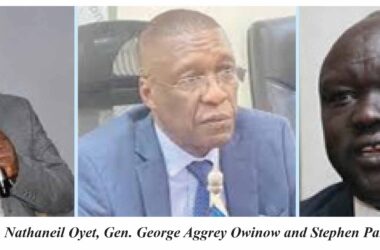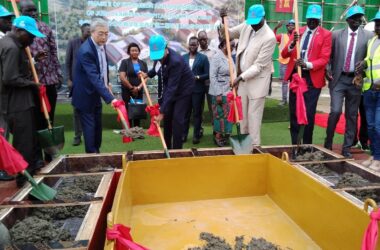By Bida Elly David
South Sudan Transitional Legislative Assembly disavows the statement by one of its members, proposing to extend terms of office for President Salva Kiir and his First Vice President by five years.
Speaking to No. 1 Citizen Daily Newspaper, Parliament spokesperson, John Agany ruled out the proposal of the lawmaker.
Agany said that there is no way the parliament would push for the extension of term of government without the parties to the agreement.
“Do we think the parliament, being the August House, has political consensus as far as preparations for elections are concerned? No. And categorically, it is a big no,” he stressed.
The parliament spokesperson added that the tasks of the national parliament are already spelled out in both the constitution and the present agreement, saying the MP acted outside the box.
“The national parliament has no right to propose to anybody that the government be extended. It is the executives who are tasked with doing it who should sit down with the parties and give us the timeline,” Agany emphasized.
According to Agany, the question of election is spelled out in the two bills, the National Election Act and the Political Parties Act.
“These two books tell us a specific time for every activity concerning the election. It has been given the time frame, and it is metrics used by the government, not individuals. People should respect the laws we make,” he said.
He further reiterated that the election preparations have commenced while the parliament deliberates on reaming bills.
“The whole government is actually preparing for the next election and setting political activities to begin. I don’t know why our people are hurrying up to make unnecessary decisions,” Agany questioned.
He recapped that listening to individual MPs without consensus is not the position of the parliament.
“The executive, are tasked actually to lead us to election. Should any consensus be there that we are not going for an election and there should be an extension, then it has to be decided by the people who are in agreement,” he said.
Agany recounted that the present agreement has been signed by the five parties, and no single party can rule out elections.
“It is not unilateral for one party to say that we are not going for an election. Even SPLM herself will never say that we are not going for an election. If the political parties sit down or if they are sitting down to say, let us make the extension, this will be totally up to them,” he added.
He highlighted that decisions for extending the government should also be made by a civil will, and then they will be done.
“If the people of the Republic of South Sudan accept it as an extension, it is up to them, like they did in the past. But up to this time, we are saying that we are going for an election,” he emphasized.
Last week, lawmaker David De Dau said that President Salva Kiir and First Vice President Dr. Riek Machar be given another five years, arguing that the extension will give ample time for the duo to prepare the Country for democratic elections
He underscored the need for the two leaders to be given space to enable them to finish some of the provisions to prepare the country for credible elections.
The proposal has received mixed public reaction reactions. Political analysts and civil society activists have bitterly criticized the proposal.
In an earlier interview, Edmund Yakani, CEPO’s executive director, said the current parliament lacks political will and commitment towards national service, triggering a lack of trust and confidence among them.
He argued that extending more years to leadership without reforms is a waste of time and resources.
“Even if we give them more than a hundred years, they will not deliver anything; they keep on dragging their feet,” he earlier stated.
Meanwhile, policy analyst James Boboya noted that there is no need for the extension since there is no clear vision of progress.
“Extending the leadership happens when among us there is no pandemic corruption, power sharing, diverting public funding for private gains, lack of political will, and civic space,” Boboya said.




